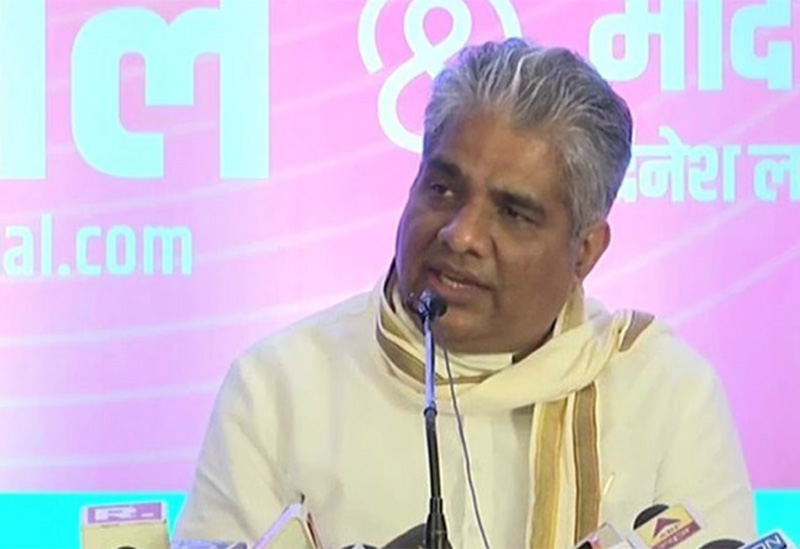NEW DELHI, June 28:
Union Environment Minister Bhupender Yadav on Tuesday said the Government has given enough time to the industry and the general public to prepare for the ban on single-use plastic (SUP) items and it hopes for everyone’s cooperation in implementing it from July 1.
Environment ministry officials said the notification to phase out 19 SUP items was issued under the Environment Protection Act (EPA) and any violation will invite punitive action, including a fine or a jail term, detailed under Section 15 of the Act.
“The notification to phase out the 19 identified SUP items by July 1, 2022 was issued in August 2021. We have given enough time (to prepare for the phasing out of SUP items). We gave them (those dealing in SUP items) certainty for the future, made them understand and the majority of them support it,” the minister said in response to a question on some industry representatives saying they are not ready for the ban.
“I have met the industry representatives and the Government hopes for their cooperation in phasing out single-use plastic items,” he said.
On August 12 last year, the ministry had issued a notification prohibiting manufacture, import, stocking, distribution, sale and use of identified SUP commodities, including polystyrene and expanded polystyrene from July 1, 2022.
The identified SUP items include earbuds, plastic sticks for balloons, flags, candy sticks, ice-cream sticks, polystyrene (thermocol), plates, cups, glasses, forks, spoons, knives, straws, trays, wrapping or packaging films around sweets boxes, invitation cards, cigarette packets, plastic or PVC banners of less than 100 micron, and stirrers.
According to the Central Pollution Control Board (CPCB), India generates around 2.4 lakh tonnes of SUP per annum. The per capita SUP production is 0.18 kg per year.
Officials said plastic used for packaging in the FMCG sector is not banned but will be covered under the Extended Producer Responsibility (EPR) guidelines. Producers, manufacturers, and brand owners will have to ensure collection of such plastic back from the market.
The Government has been working on phasing out SUP items since 2018, Yadav said.
The ministry issued “Standard Guidelines for Single-Use Plastic” on January 21, 2019 to all states, union territories and central ministries for eliminating the use of SUPs, he said.
The Department of Chemicals and Petrochemicals had set up an expert committee on single-use plastics which submitted its report in September 2019, recommending an immediate ban on identified SUP items which have low utility and high environmental impact.
The notification banning the identified SUP items was issued after obtaining objections and suggestions of stakeholders, Yadav said.
Officials said strict directions were issued to manufacturers, stockists, suppliers and distributors of SUP items to ensure zero inventory of the 19 SUP items. Failure to do so will invite punitive action.
Asked if any action will be taken against the common people found violating the ban, a senior official said, “Violation of the ban will be considered violation of the EPA which is a criminal offence. These punitive actions have been detailed under Section 15 of the Act. Municipal corporations can also take action against violators according to their bye-laws.”
Section 15 of the Environment Protection Act says: “Whoever fails to comply with or contravenes any of the provisions of this Act… Shall be punishable with imprisonment for a term which may extend to five years with fine which may extend to one lakh rupees, or with both.”
“If the failure or contravention continues beyond a period of one year after the date of conviction, the offender shall be punishable with imprisonment for a term which may extend to seven years,” it reads.
For effective enforcement of the ban on the identified SUP items from July 1, national and state-level control rooms will be set up and special enforcement teams will be formed to check illegal manufacture, import, stocking, distribution, sale and use of banned SUP items, the ministry said.
States and union territories have been asked to set up border checkpoints to stop the interstate movement of any banned SUP items.
The CPCB has launched a grievance redressal application to empower citizens to help curb the use of plastic.
Alternatives to the banned SUP items exist in the market and their demand will increase once the ban comes into force. The high demand will reduce their cost, an official said.
Yadav said a number of companies are already working on alternatives to SUP items. Many new start-ups have come up in this domain but the government has not partnered with anyone.
The CPCB has registered units manufacturing compostable plastic with a cumulative capacity of 3 lakh tonnes per annum. (PTI)
Trending Now
E-Paper


